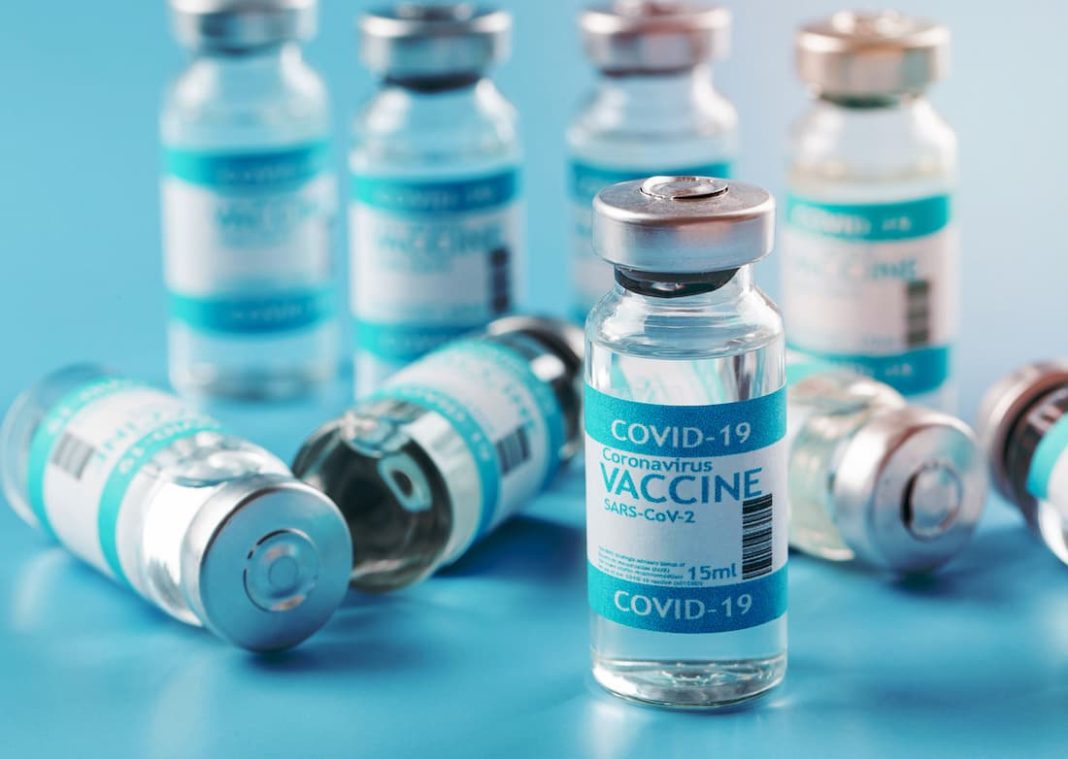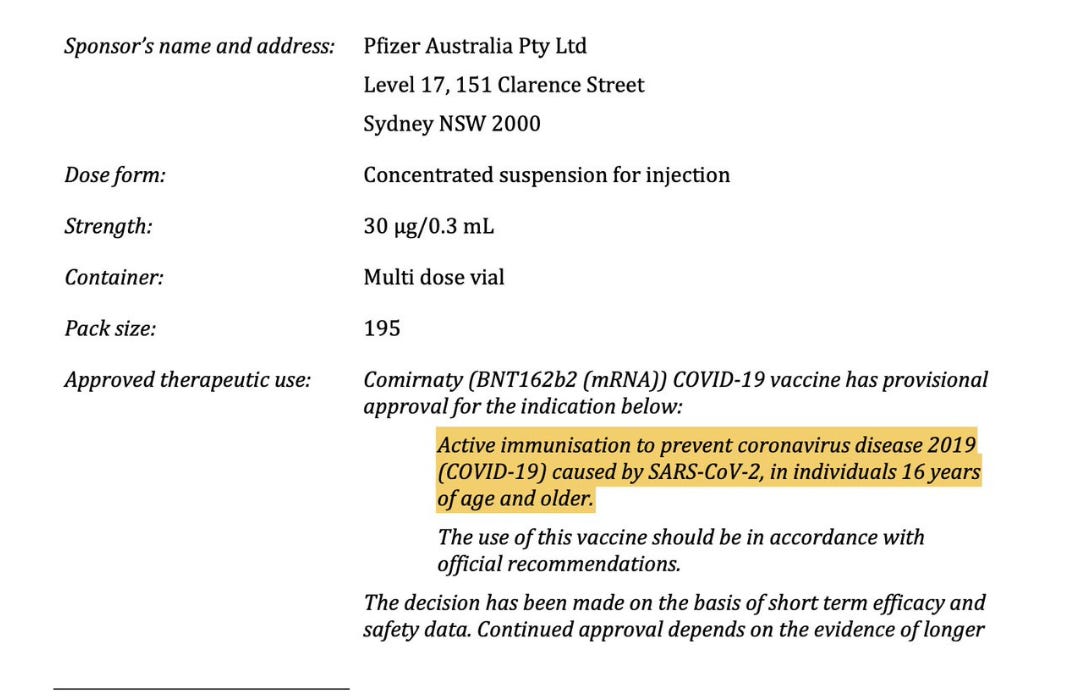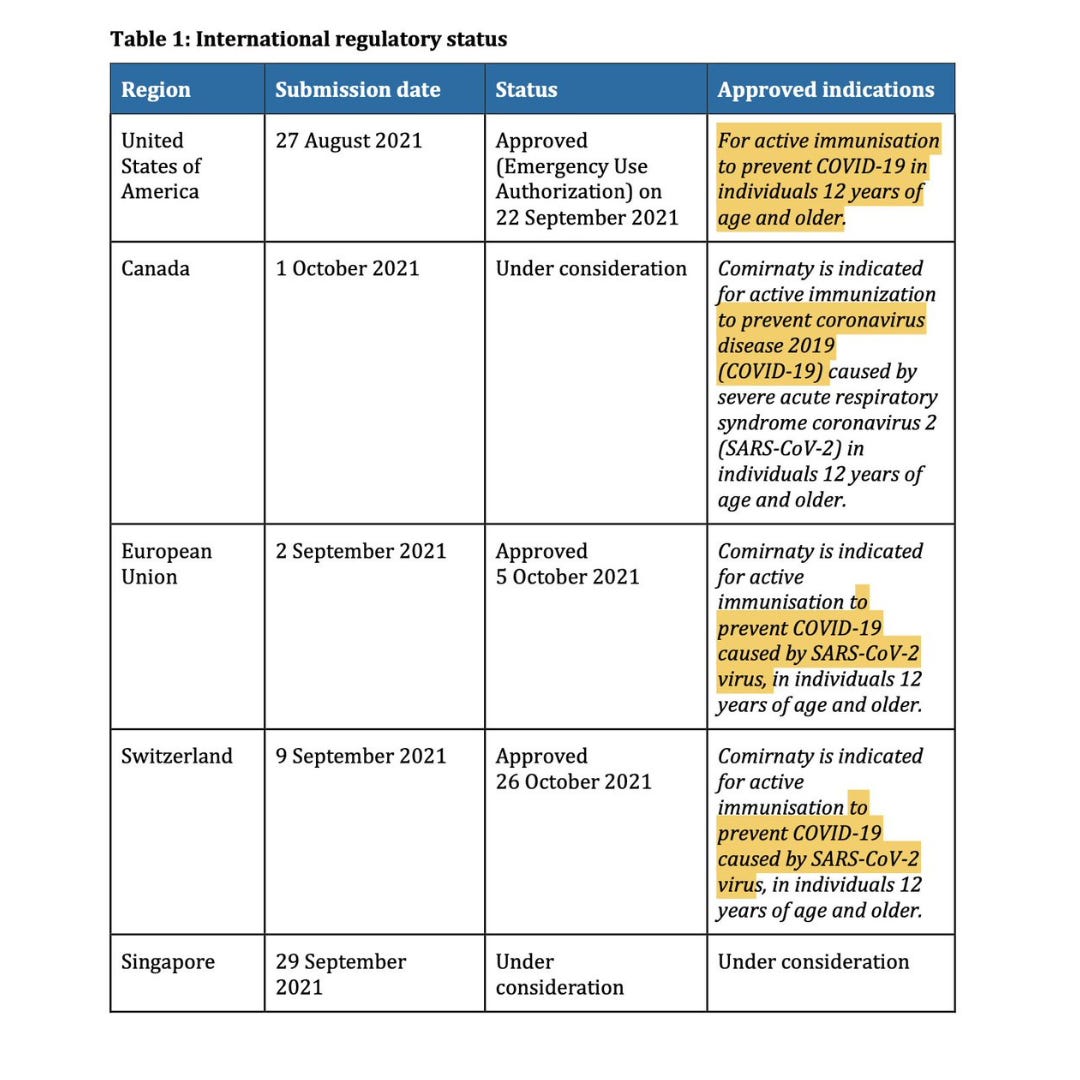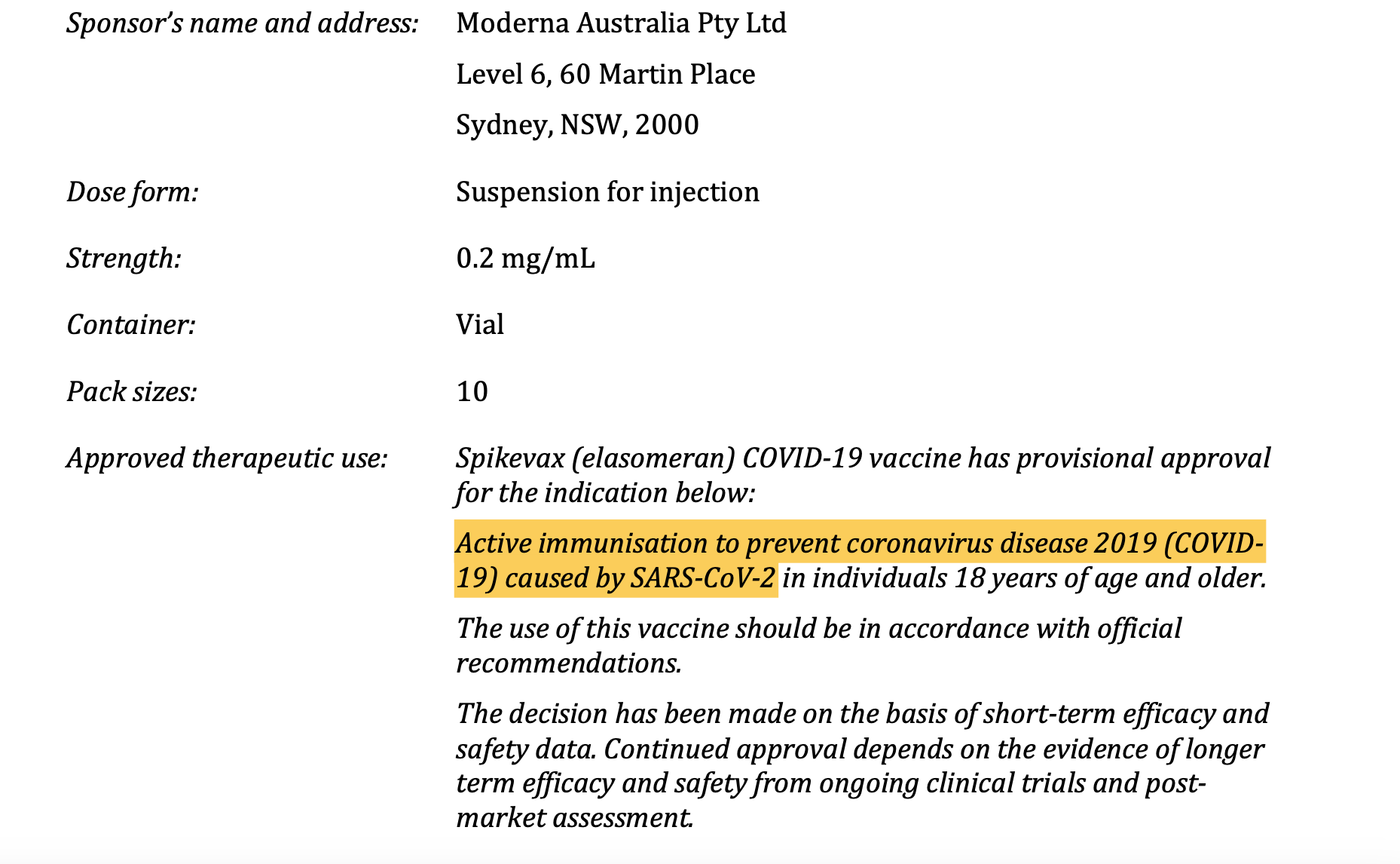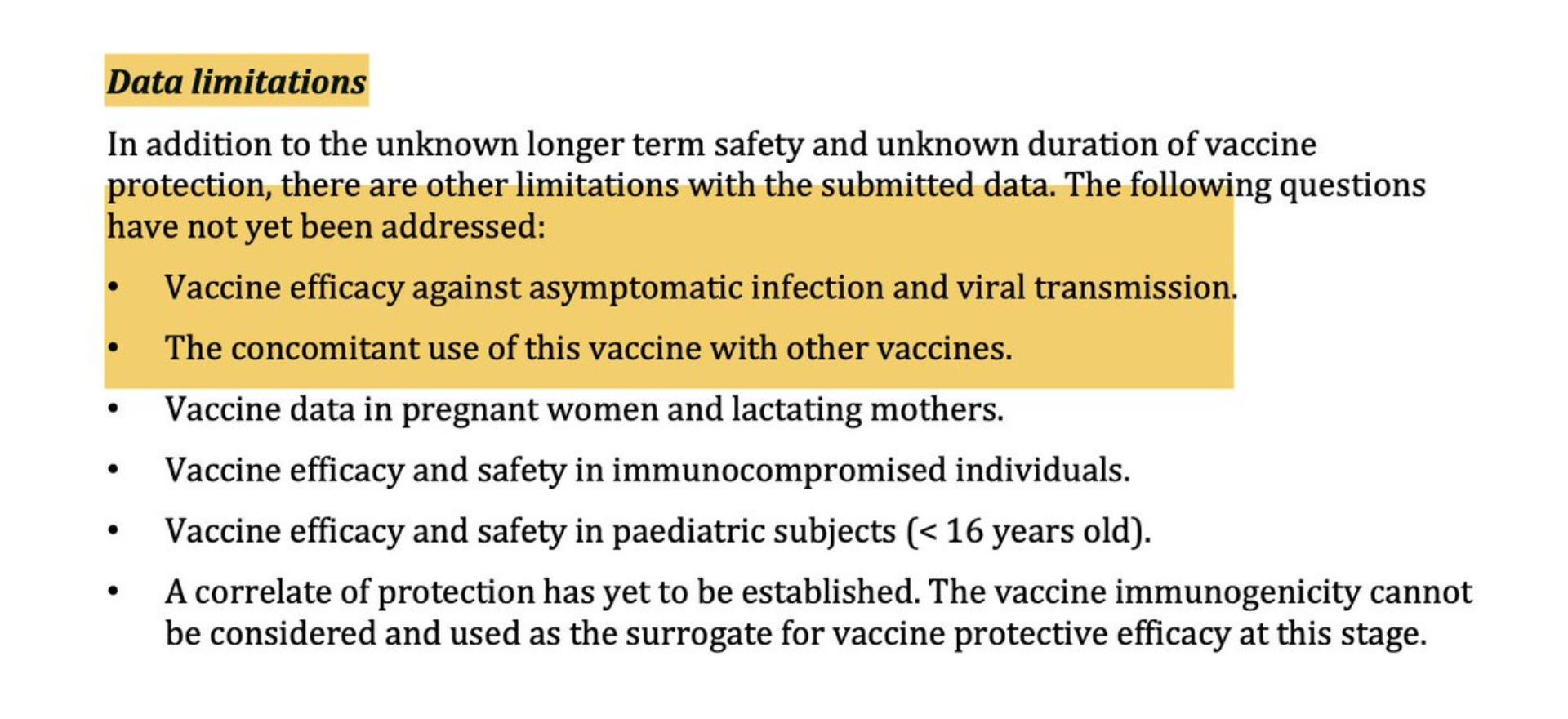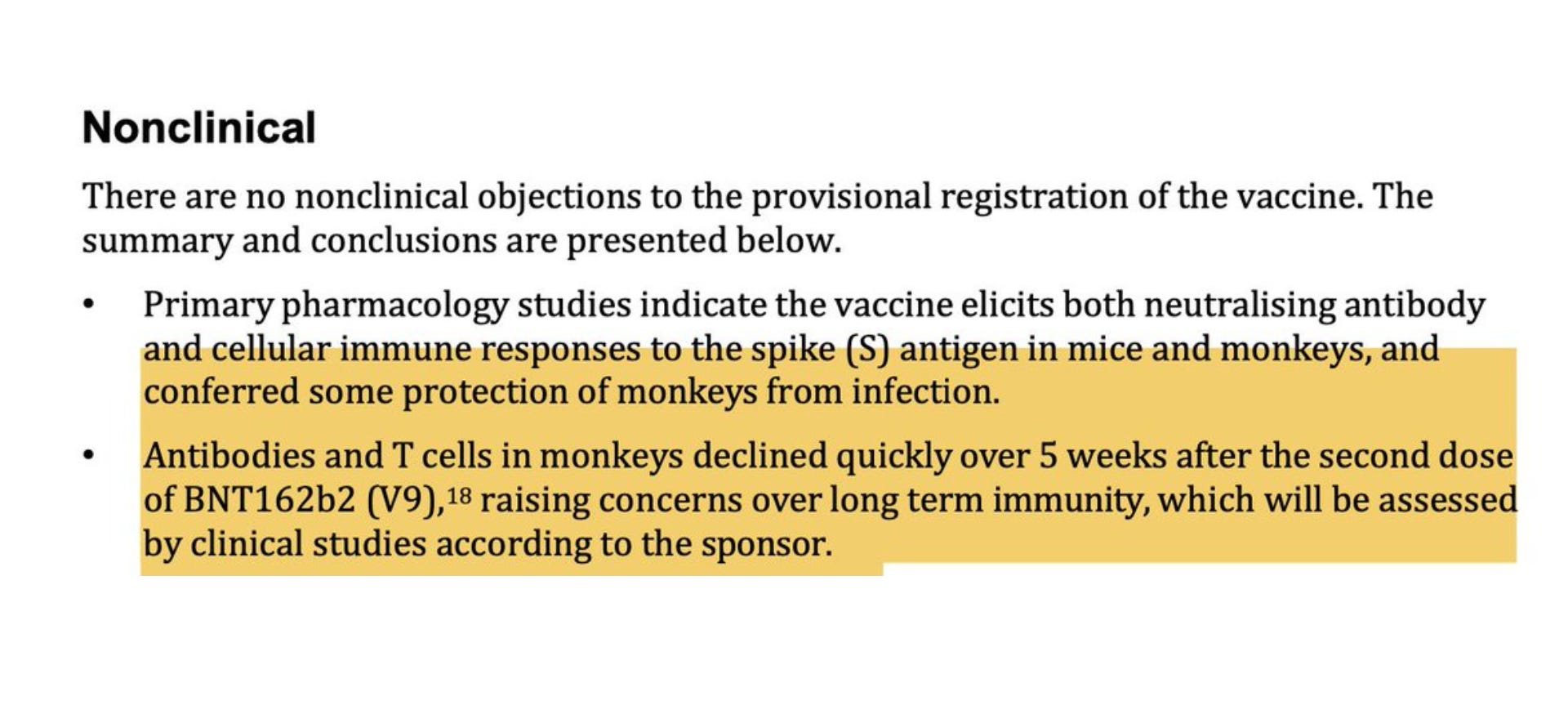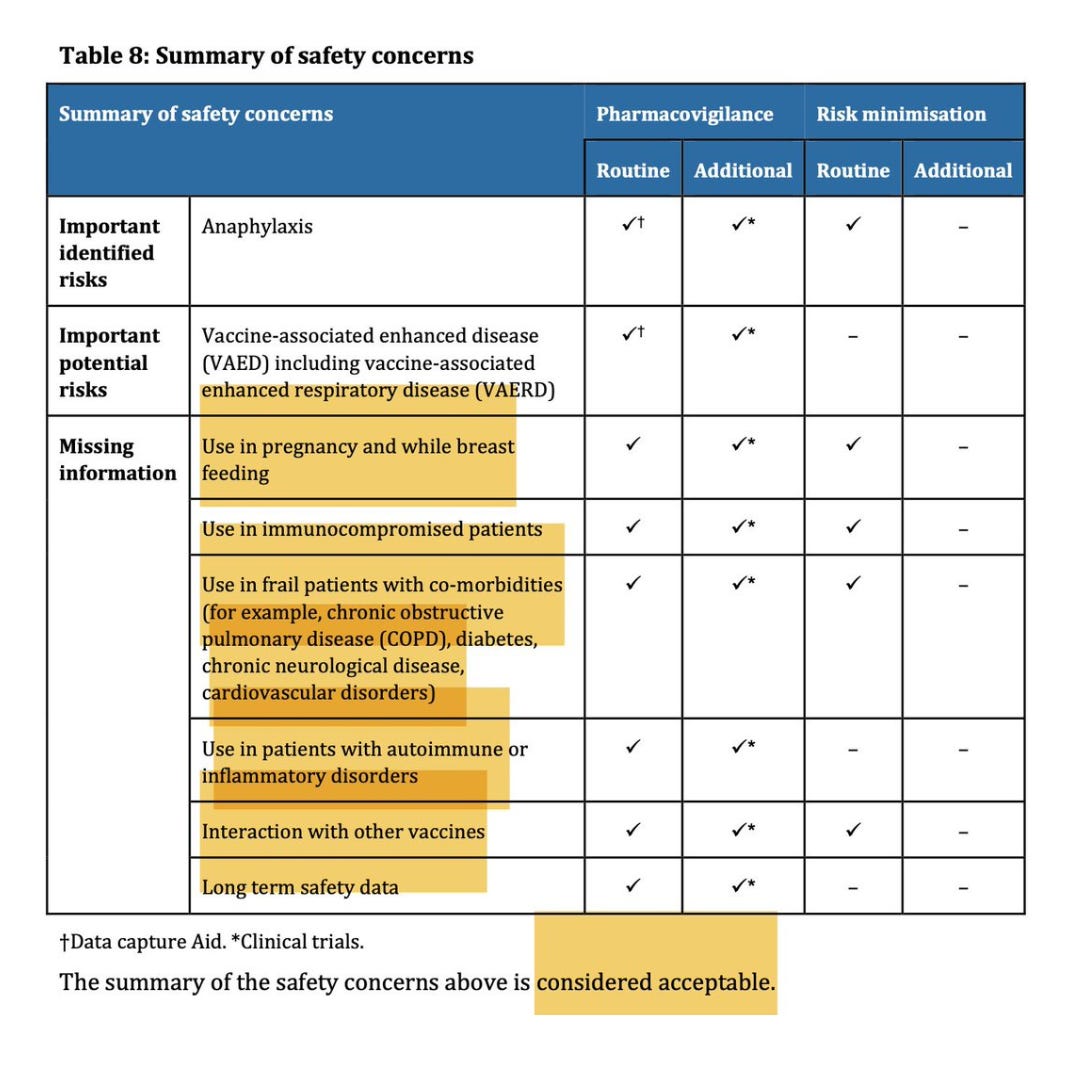After climbing the world leaderboard during the initial Covid vaccine rollout to achieve over 95% vaccination coverage,¹ Australians have turned their back on boosters, with the vast majority now ‘under-vaccinated’.
Just 1.7 million, or 8.5% of Australia’s 20.1 million adults have had a Covid booster in the past six months, according to the latest Australian Government update (as at 7 February 2024). In contrast, 18.1 million, or 90% had at least one vaccination previously, but have not kept up-to-date.
An estimated 302,000 (1.5%) Australian adults remain unvaccinated, although this number may be closer to half a million according to data aggregator site Covidlive.com.au.²
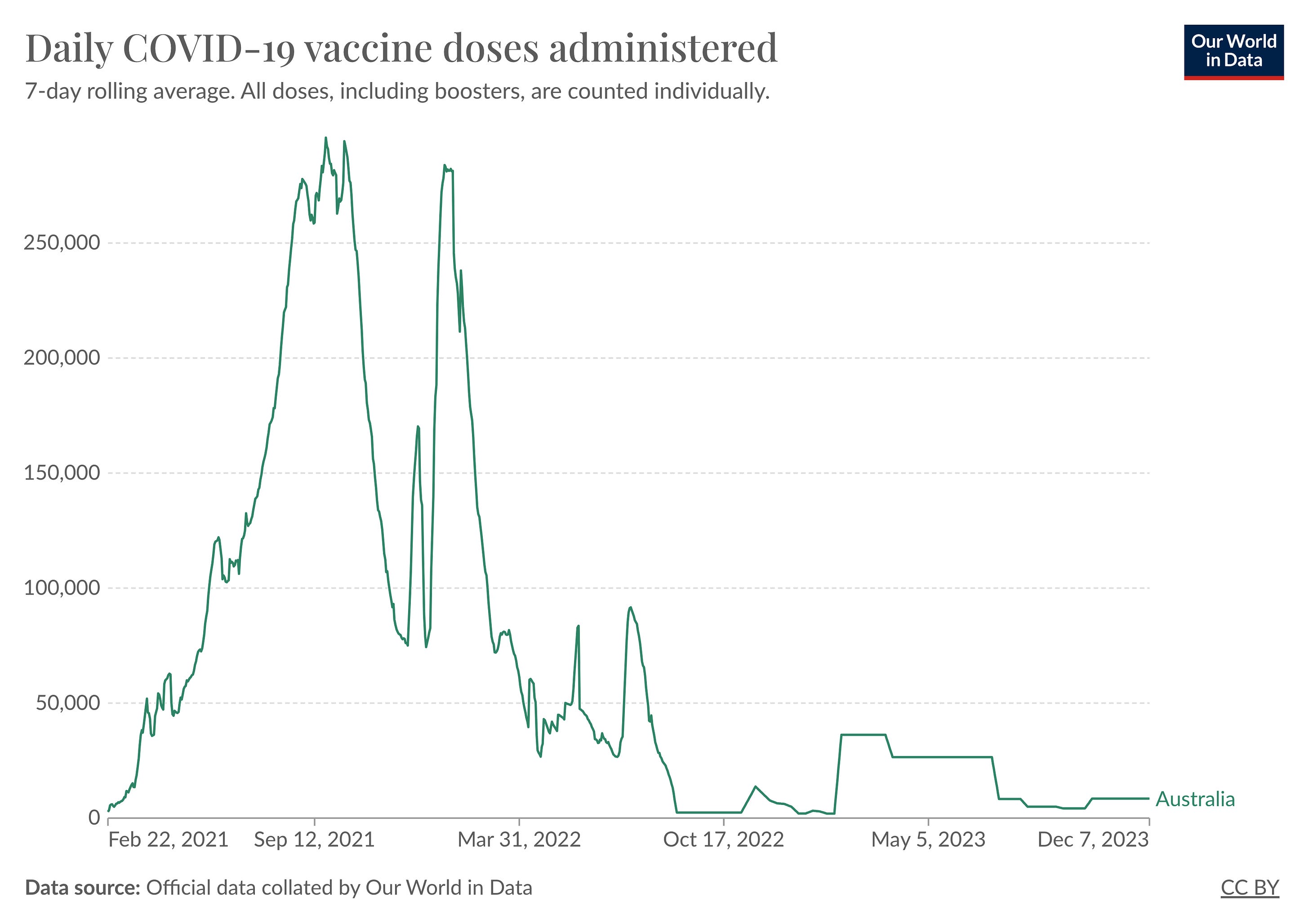 |
Aside from a barely perceptible flurry of boosting in November and December of 2023 (likely related to a hysterical media blitz about an eighth Covid wave), Australians are no longer bothering with boosters, which at this stage are predominantly the Pfizer and Moderna mRNAs.
Predictably, the majority of up-to-date Australians are aged 75 and over, although even then, two thirds (66.4%) are under-vaccinated. 80% of adults in the 64 to 75 years age bracket, and 96.7% of adults in the 18 to 64 age bracket are under-vaccinated.
This means most Australians have ignored even the relatively conservative guidance of the Australian Technical Advisory Group on Immunisation (ATAGI), which recommends Covid boosters only to those aged 65 and over, and adults who fall into special risk categories.
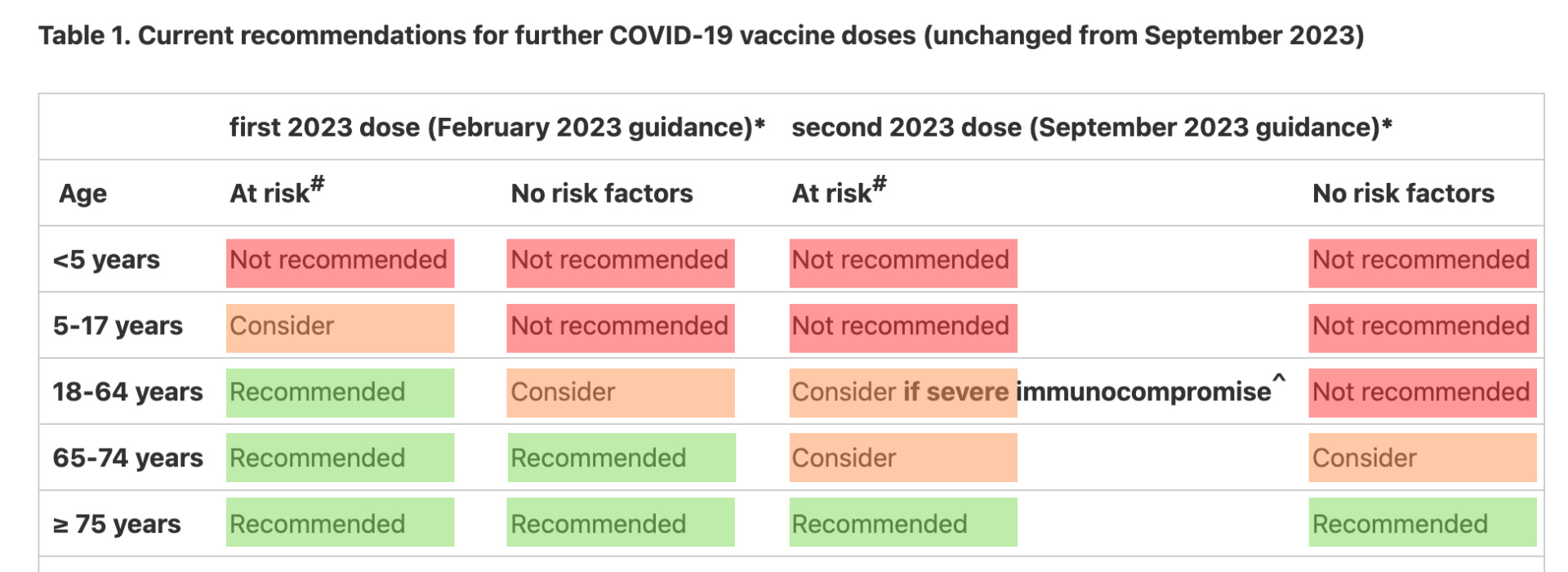 |
They’ve also largely ignored repeated warnings in the media from high-profile experts about the dangers of Covid, and calls to get boosted for reasons as trivial as ‘feeling at risk’ because of their job or lifestyle.
Notably, ATAGI does not recommend boosters for such reasons, especially in the case of adolescents and young adults, which it advises “have a lower age-related risk of severe COVID-19, and a comparatively higher risk of myocarditis following vaccination.”
Experts blame social media, vaccine fatigue, poor public health messaging, and rampant misinformation for Australians’ disinterest in continuing to vaccinate. All of these may be contributing factors, but there’s another glaringly obvious explanation.
The products were a failure from the very beginning.
Recall that Pfizer’s vaccine, which accounts for over 70% of all vaccine doses administered in Australia and billions worldwide, was provisionally approved for the sole purpose of, “Active immunisation to prevent coronavirus disease 2019 (COVID-19) caused by SARS-CoV-2” (emphasis added).
This is clearly stated in the Therapeutic Goods Administration’s (TGA) Public Assessment Report for the Pfizer vaccine, first issued in January 2021, and in comparative regulatory approval documentation around the world.
This is also the case for Moderna’s Covid vaccine, which was approved to “prevent coronavirus disease,” as stated in the corresponding Public Assessment Report, August 2021.
Australians knew the deal. Civil liberties were confiscated until we earned them back by vaccinating our way to freedom and gainful employment. The Federal Government allocated taxpayer funds to a ‘Spread Freedom’ campaign to assist state and territory governments in achieving their vaccination targets.
Of course, Australians considering vaccination against job loss and house arrest probably hadn’t read the TGA’s Public Assessment Report for the Pfizer vaccine, which specified that “vaccine efficacy against asymptomatic infection and viral transmission” had “not yet been addressed” (emphasis added).
So when officials chanted ‘stop the spread’ and ‘keep our community safe’ like rosary prayers in the daily televised press conferences, all but the resolute few believed, and rolled up to participate in the mass jabbing ritual.
And yes, officials really did say it would stop transmission, presumably because this particular piece of disinformation provided the rationale for Public Health Orders (PHO) related to vaccine passports and workplace vaccine mandates.
For example, the New South Wales PHO below, which asserts that the risk of Covid transmission can be “reduced if all people eligible for vaccination… are fully vaccinated.” (As spotted on Arkmedic’s Substack)
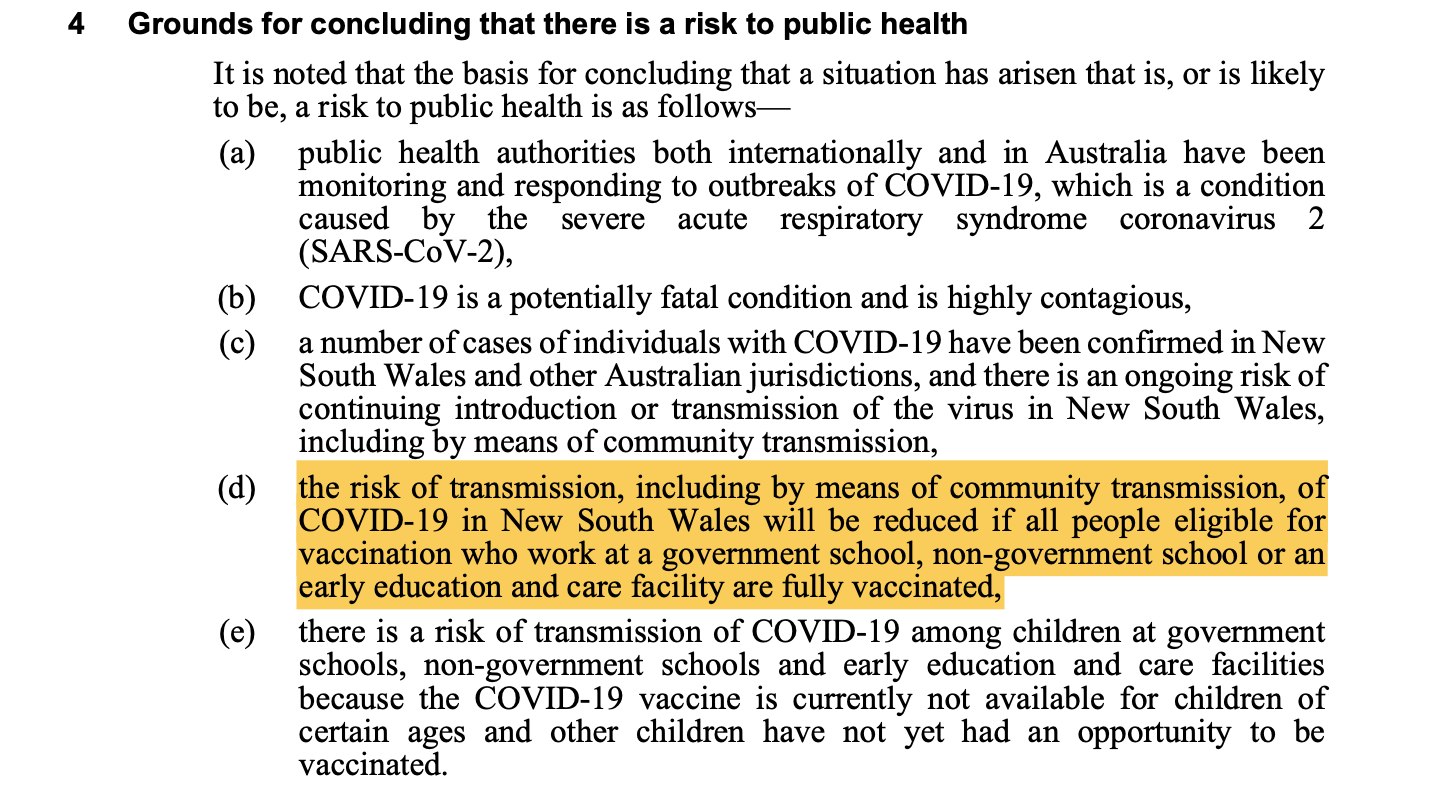 |
But, just as Australia hit its record-breaking vaccination targets and some degree of freedom was restored, Covid cases skyrocketed.
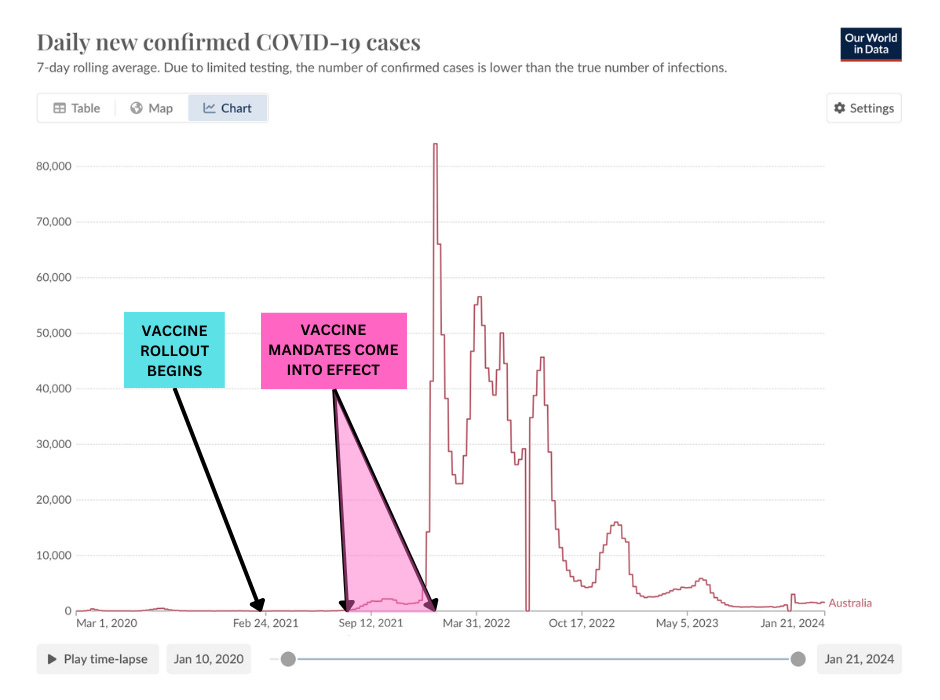 |
Australians soon clocked that the products did not do the one thing they were approved to do – prevent symptomatic disease. The term for this in the Australian Immunisation Handbook is “vaccine failure.”
Then, seemingly overnight, the story changed.
‘It was only ever meant to reduce the severity of illness and death.’
Like the Men in Black with their memory flashy thing, public health campaigns introduced new phrases like ‘reduce the severity’ and ‘protect the healthcare system’, as though citizens exist to protect the infrastructure they pay for.
Soon, the hospitals filled up with vaccinated patients. After several months of regularly reporting that there were zero unvaccinated patients in hospital, New South Wales Health, the only state health department that published proper data on hospitalisations and deaths by vaccination dose, stopped publishing the reports.
Vaccinated Australians probably didn’t know that the TGA’s Public Assessment Report indicated that the Pfizer vaccine probably worked for five weeks at best, “raising concerns over long term immunity.” But they worked it out for themselves when they got their first, and then second Covid infections. By the end of 2022, serosurveillance data showed that more than 2/3 of Australian adults had been infected with Omicron at least once.
Vaccinated Australians wouldn’t have read that the report flagged missing safety information for multiple cohorts, including pregnant and breastfeeding mothers, immunocompromised patients, frail patients with co-morbidities, and patients with autoimmune or inflammatory disorders, either.
The TGA considered this “acceptable,” and the vaccine rollout was prioritised to these groups (and healthcare workers) despite there being no safety data available. Patients seeking vaccine exemptions due to the absence of safety data were denied.
Maybe vaccinated Australians trusted the TGA, the pharma companies and public health officials at first. But within the first year of the rollout, Australia’s safety surveillance systems recorded an “exponential increase” in injury reports associated with the Covid vaccines.
The TGA admitted to 14 deaths arising from Covid vaccination, but vaccinated Australians surely found it troubling that over 1,000 deaths had been reported. Some, like Amy Sedgewick and Caitlin Goetz, were so obviously related to the injections that the TGA’s refusal to acknowledge it could only undermine public confidence in the regulator.
Vaccinated Australians would also have noticed that severely injured people were having great difficulties accessing compensation, with fewer than 5% of claims being approved by the national scheme.
They may never have seen the below graph, from data aggregator site OpenDAEN, which pulls injury reports related to Covid vaccinations from Australia’s adverse event reporting database, the DAEN. The scientific literature suggests that injuries captured by systems such as the TGA’s are under-reported in the order of 10-100 times. By now, many Australians know someone, if not multiple people, who have had cause to submit such a report (whether they did so or not).
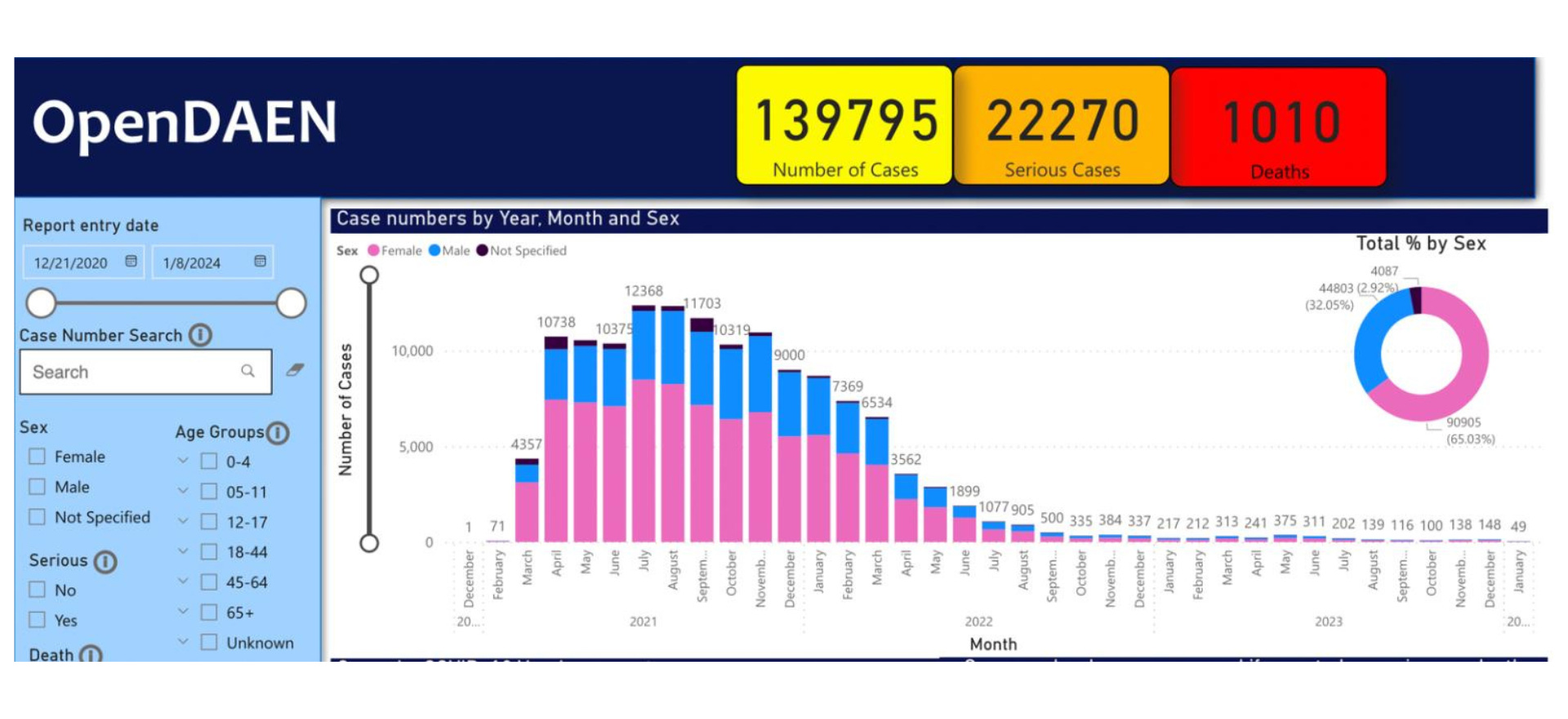 |
To this day, the TGA’s Public Assessment Reports still state that the single approved therapeutic use for the Pfizer and Moderna mRNA Covid vaccines (both mono- and bivalent) is prevention of coronavirus disease.
Yet these products, by the TGA’s own documentation, never did what they were supposed to do, and still don’t. In any other industry, this would be chalked up as an unmitigated failure, and Australians know it.
The Government and its agencies can parrot ‘safe and effective’ all they like, but now that most Australians no longer have to take the shots in exchange for the right to earn a living, they’re walking away from the mRNAs.³
Now, wait til the people find out that the Pfizer vaccine that most Australians were injected with was never tested at scale in a Randomised Controlled Trial before being rolled out en masse…
Rebekah Barnett reports from Western Australia. Follow her work on Substack at Dystopian Down Under.

